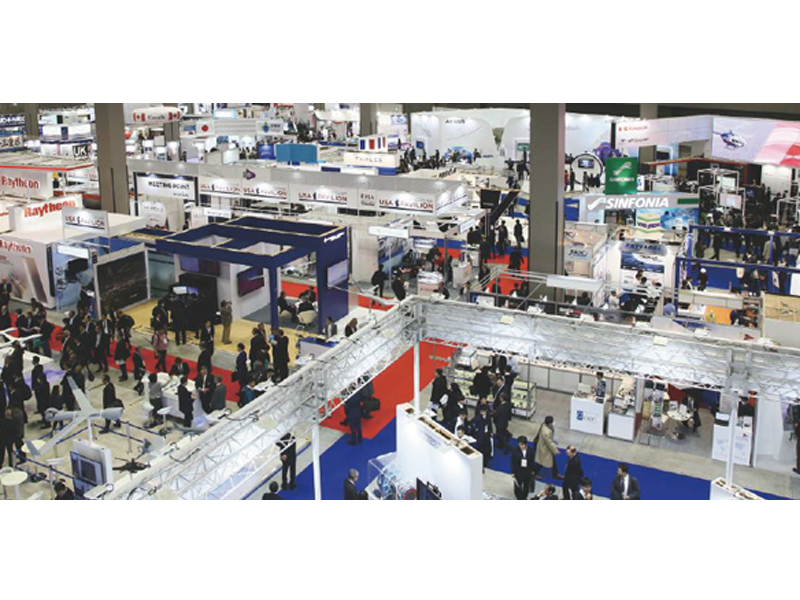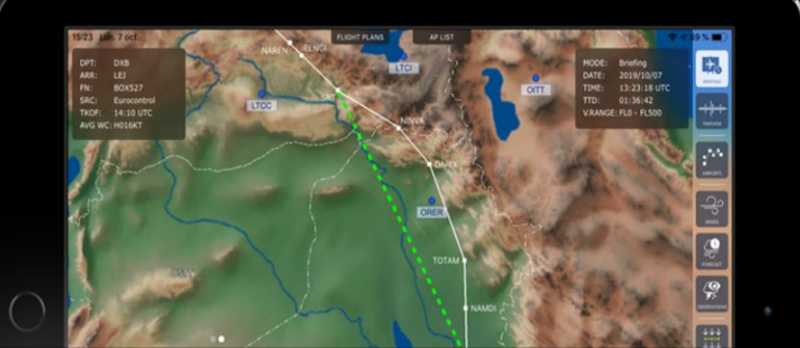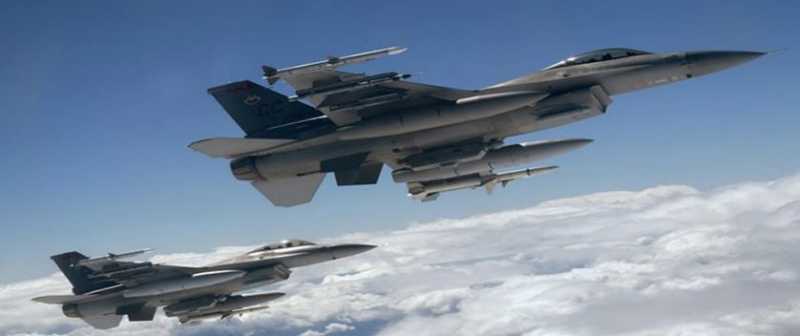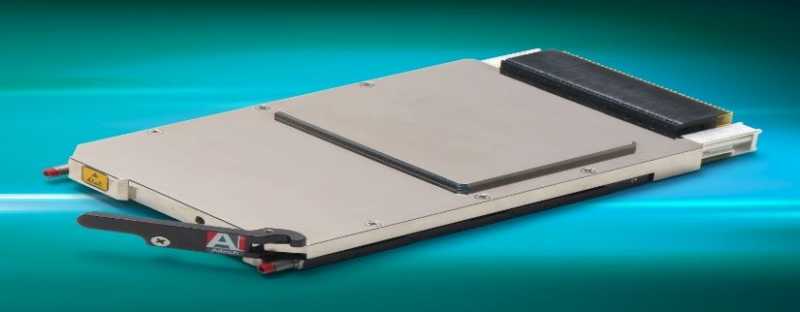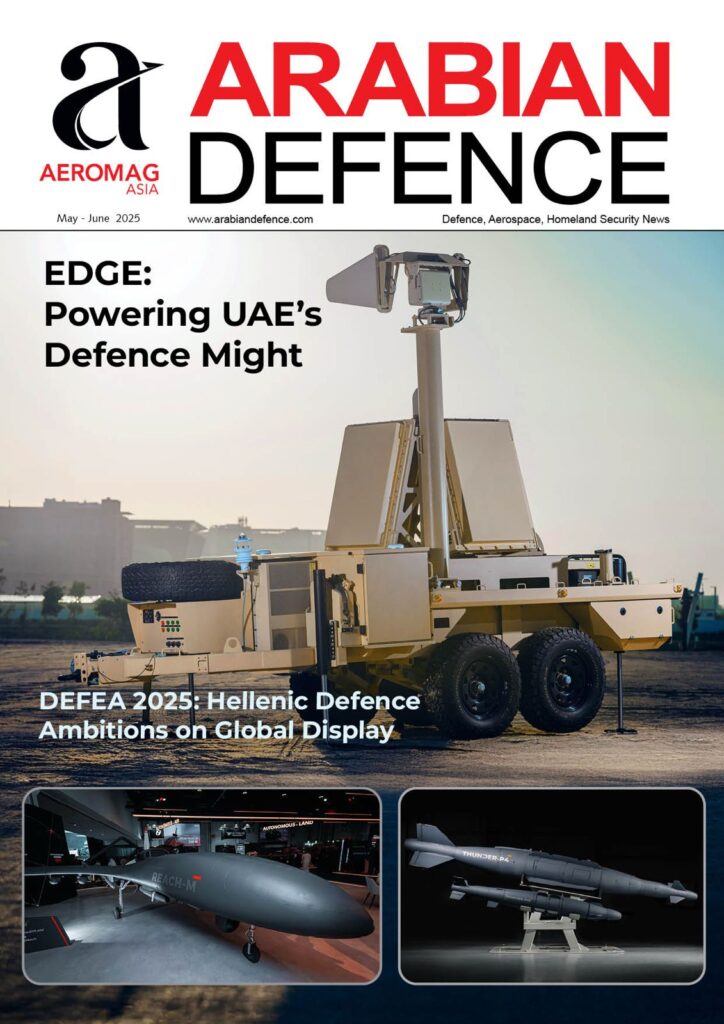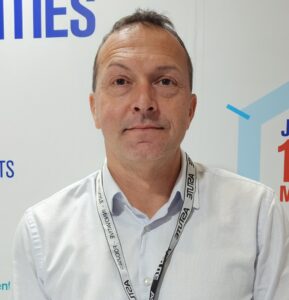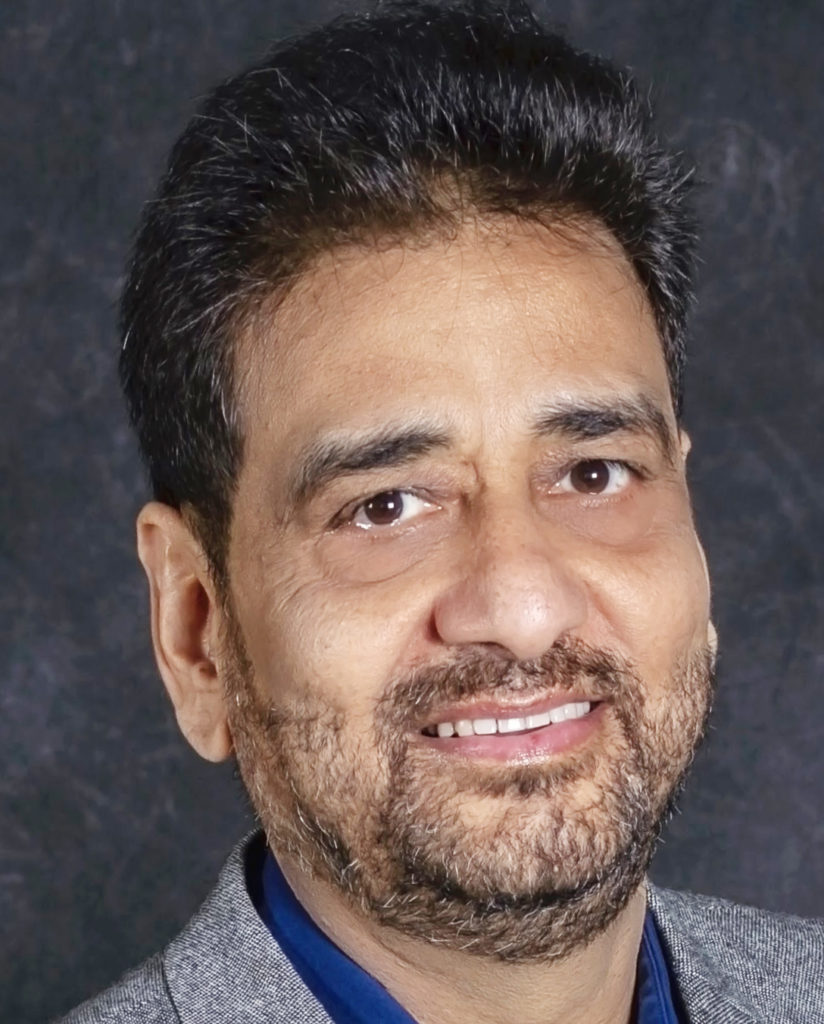
MD & Customer and Account Management
Collins Aerospace
Collins Aerospace has been established in the Kingdom of Saudi Arabia (KSA) for decades, providing a complete range of aerospace and defence solutions for the Ministry of Defence, integrators, aircraft manufacturers, airlines and other customers.
Collins Aerospace is a leader in technologically advanced and intelligent solutions for the global aerospace and defence industry. From the smallest details to the highest pursuits, Collins Aerospace is dedicated to redefining aerospace.
Collins Aerospace is participating in the World Defense Show 2022 (WDS) in Riyadh.
In this interview, Sunil Raina, MD, Customer & Account Management, Collins Aerospace, said, at WDS the company will introduce next generation ACES 5 ejection seats to upgrade legacy ACES II seats on F-15 and F-16 fleets. Also, the company will highlight communication and navigation radio sensors and data links among other things.
Future Vertical Lift (FVL) is a key focus for Collins Aerospace. How crucial is the project? How do you plan to solve the complex FVL problems and define the future of best-in-class military rotorcraft?
Future Vertical Lift (FVL) is a key focus for Collins Aerospace to dominate the multi-domain battlespace. We are helping to define the next generation of military rotorcraft and are poised to help align and deliver capabilities that will provide advanced, integrated solutions and extraordinary performance.
Collins’ longstanding experience with rotorcraft includes:
- New composite building materials
- Lighter seating options for pilots and crews
- Enhanced connectivity and wireless technologies
- Predictive diagnostics
- More integrated equipment and structures
 Other examples included minimising the size and number of apertures on an aircraft and, where possible, finding ways to integrate them. This might mean combining lights and antennas into a single component, for example, and using a flush-mounted LED light solution to save additional space.
Other examples included minimising the size and number of apertures on an aircraft and, where possible, finding ways to integrate them. This might mean combining lights and antennas into a single component, for example, and using a flush-mounted LED light solution to save additional space.
Collins Aerospace expands propeller MRO services in Malaysia to accommodate growing ATR fleets in Asia-Pacific. How does the company focus on expanding its market in South East Asia? – For what particular solution?
We are looking to expand our MRO business in the Asia-Pacific region by:
- Quadrupling the size of our MRO facility in Malaysia and increasing our MRO capacity in South East Asia to cater to growing fleets and demand.
- Expand Collins’ Aftermarket offerings to cater to regional operators’ fleet profiles.
- Bringing key repair capabilities into South East Asia and expanding our current MRO product portfolio to provide in-region repair service for growing platforms (e.g., variants of 787, 777, A350)
- Offering a comprehensive suite of aftermarket solutions to suit different customer profiles, including MRO solutions, comprehensive life cycle solutions, used serviceable materials (USM), prognostics and health maintenance (PHM).
Collins recently completed the acquisition of FlightAware expanding the operations of its Connected Aviation Solutions business unit. What are the company’s operations focused on advancing connected ecosystem solutions?
 With the addition of FlightAware, Collins Aerospace can unlock the power of data and analytics for airlines, airports and business aircraft operators. When combined with Collins’ networking hardware, sensors, cloud computing and applications, it’s able to accelerate the next generation of intelligent digital solutions, helping customers turn data into value to enhance the passenger experience, optimise operations and help reduce the reliance of fossil fuels.
With the addition of FlightAware, Collins Aerospace can unlock the power of data and analytics for airlines, airports and business aircraft operators. When combined with Collins’ networking hardware, sensors, cloud computing and applications, it’s able to accelerate the next generation of intelligent digital solutions, helping customers turn data into value to enhance the passenger experience, optimise operations and help reduce the reliance of fossil fuels.
Collins aims high with its participation at World Defense Show 2022 in Saudi Arabia. What are the latest operations in the Middle East region?
Collins Aerospace has been established in the Kingdom of Saudi Arabia (KSA) for decades, providing a complete range of aerospace and defence solutions for the Ministry of Defence, integrators, aircraft manufacturers, airlines and other customers. Our presence includes a facility in Riyadh and offices at the RSAF HQ.
Collins Aerospace has a long history of partnerships in KSA. We have partnered extensively with AEC for production and assembly of avionics displays and communication systems for several platforms used in the Kingdom. We have also partnered to establish local MRO capabilities for military applications. We are looking forward to further expanding our local capabilities in the Kingdom as we continue to grow and support the implementation of Vision 2030.
At WDS, Collins Aerospace will highlight:
- Communication and navigation radio sensors and data links.
- Intelligence, Surveillance and Reconnaissance (ISR) sensors and pods for manned and unmanned platforms along with a complete range of image exploitation options to complement the airborne systems.
- Rescue hoist and cargo winch.
- The company is also introducing next generation ACES 5 ejection seats to upgrade legacy ACES II seats on F-15 and F-16 fleets.

The company is revolutionising the future of travel by using sustainable technologies and materials, like recyclable thermoplastic composites, in key aerostructures products. Could you talk more about it?
Collins Aerospace recently announced the acquisition of Dutch Thermoplastic Components (DTC), a leader in the development and fabrication of structural thermoplastic composite parts. With the acquisition, we expanded our ability to use advanced thermoplastics to make lighter aircraft components for our customers, ultimately helping support lighter aircraft that are more fuel-efficient. With thermoplastic composites, we can potentially reduce the weight of aircraft structures by 20 to 50% compared to thermoset solutions and metallic solutions respectively.
In addition to improved product performance, thermoplastics are also more sustainable to manufacture. By using traditional materials like thermosets, aircraft parts are cured in large autoclave ovens that consume a massive amount of energy. With thermoplastic composites, we are using more efficient out-of-autoclave processes that greatly reduce energy usage. Switching from thermosets to thermoplastic composites also adds to energy efficiency as cold storage of thermoset materials is eliminated. Thermoplastic composites have higher resistance to impact and fatigue compared to thermosets. This means that parts will last longer, a key to future circular economies. Finally, thermoplastic composite products are fully recyclable at the end of their lifecycle, meaning that they can be melted, reshaped, and reused.
 How much potential does the company see in the defence market in India? How does Collins cater to the needs of growing defence market in India?
How much potential does the company see in the defence market in India? How does Collins cater to the needs of growing defence market in India?
We see lots of potential in the defence market and are actively pursuing opportunities in the areas of modernisation and supporting India’s self-reliance programme.
Some examples of how we can cater to the needs of the growing market include:
- The TruNetTM AR1500 network communications airborne radio is part of the TruNet networked communications solution family, which includes other TruNet radios, advanced networking waveforms, apps, ancillaries and services. TruNet is the first solution to ensure secure connectivity between ground and airborne elements across the entire battlespace. Air, sea or land military forces depend on fully secure communications and interoperability, as do civil agencies supporting homeland security and disaster relief. The AR-1500 delivers this mission-critical capability through multiple waveforms and high-speed mobile ad hoc networked communications for data, voice and imagery. It also delivers critical, high-speed, ad-hoc networked communications between fast movers and mobile ground force
- ACES 5® is the latest addition to the Collins Aerospace family of Advanced Concept Ejection Seats. It incorporates significant safety and cost saving upgrades compared to the legacy ACES II®, which is credited with saving more than 680 lives since its 1978 introduction. While retaining the proven performance of the ACES II, Collins Aerospace engineers incorporated technology improvements to create the next generation ACES 5 ejection seat. The seat is rigorously tested to validate performance, reliability, and compliance with the latest safety requirements. The modular design of ACES 5 simplifies routine maintenance and enables maintainers to quickly return the aircraft back into service. These lead to improved pilot safety, improved ease of maintenance and decreased life-cycle costs.

